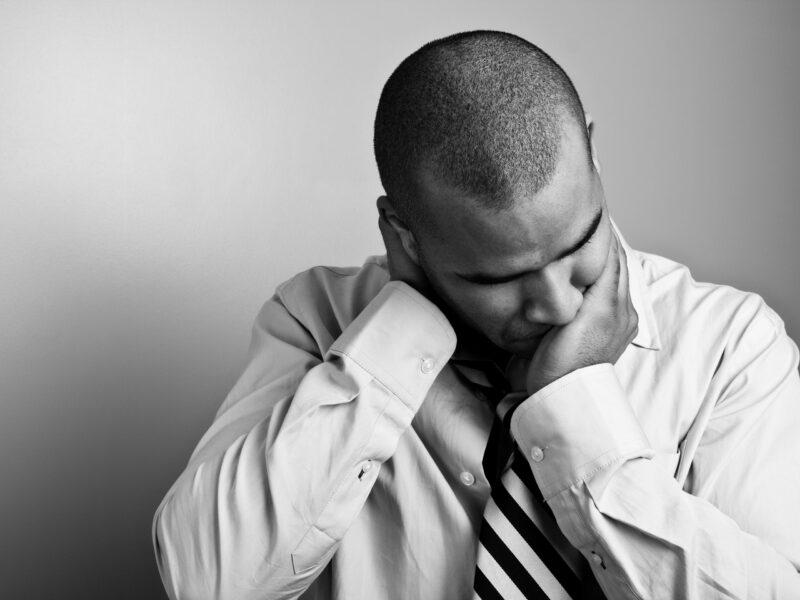Common ways health anxiety may be present in your life.
Anxiety is pervasive and treacherous, carrying a hefty emotional toll that may eventually wear you down. Anxiety disorders are widely known to be the most common mental disorders, affecting close to 30 percent of adults in the United States.
Though the most recent edition of the Diagnostic and Statistical Manual of Mental Disorders categorizes several diagnostic types of anxiety disorders. Anxiety can manifest in various ways. Many of the ways it affects people are challenging to categorize.
Health anxiety is a common manifestation of anxiety.
More Than Worry
To some extent, worrying about your health is normal, but anxiety goes far beyond worry. Fear involves pervasive, life-altering patterns of ruminating thoughts.
At times accompanied by behaviors (seeking reassurance from others, rituals, etc.) that may help lessen the impact of anxiety.
It’s long known that fear plays a significant role in inflammation, frequently resulting in physical illness. Anxiety is disruptive to everyday routines.
It causes its victims to spend astronomical amounts of time and energy trying to put out the fire stemming from their minds.
The thoughts accompanying anxiety are constant, ongoing battles that sooner or later will leak out into the drudgery of daily life—and, without intervention, can take over every action, every relationship, and every breath.
Health Anxiety Warning Signs
It goes far beyond efforts to make healthy choices and improve your physical well-being. Health anxiety can become an epidemic in and of itself, suffocating and overpowering its victims if left unchecked.
Recognizing some common signs of struggling with health anxiety can be crucial to intervening early on—and hopefully stopping the cycle before it becomes unbearable.

1) You have an intense fear that you have or will develop a deadly disease.
Health anxiety involves constant thoughts that revolve around creating a dangerous illness. Any twinge, pain, ache, sniffle, or other possible symptom becomes a ticking time bomb in your mind.
And you may start attributing very typical physical symptoms to only one horrific outcome. Imagination is a powerful tool, but in the hands of health anxiety, it can quickly convince you that the future is frightening.
2) You automatically believe you have it when you hear about an illness or disease.
The power of suggestion is authentic and none more so than with anxiety. If you’re struggling with health anxiety, your brain zeroes in on finding information that supports your ongoing worry.
Reading about a new illness, hearing from an acquaintance that they have been diagnosed with a particular disease, watching television programs that feature different ailments—all of these can feel as if they’re directly happening to you when paired with health anxiety.
3) You’re constantly looking for reassurance from professionals or loved ones.
Needing frequent outside confirmation that you aren’t sick can result in health anxiety. However, hearing that your fears are unfounded tends to be a band-aid instead of a permanent solution.
You may find yourself seeking the same relief over and over again, which can eventually put a strain on your relationships and finances.
4) Avoid doctors, hospitals, and anything related to medical situations.
Health anxiety can cause irrational fears that going to the doctor, even for a routine checkup, will reveal a dreadful illness. That trepidation often leads to an avoidance of any possible triggering stimuli.
5) You constantly seek out medical advice.
Conversely, some health anxiety sufferers repeatedly return to medical clinics and professionals for examinations and tests—even when no physician or medical practitioner has recommended them.
When a victim of health anxiety experiences what they believe to be a symptom of a disease, they will frequently pursue medical checkups in excess, requesting unusual (and often unnecessary) tests in the process—all of which can drain finances and create unwarranted worry.
6) You are preoccupied with bodily functions and physical sensations.
Health anxiety causes an obsession with finding out “what’s wrong” with your body, even when nothing serious happens. Victims can become fixated on minor physical aches and pains that bloom into something sinister in their minds.
Unfortunately, the more you worry about whether a bodily function (heartbeat, blood pressure, etc.).
Or expecting sensation, the more your brain will focus on it—and, eventually, you may become hypersensitive to it. In contrast, someone without health anxiety would unlikely notice the same feeling.
7) You refuse to believe medical professionals.
For those anxiety sufferers who routinely seek medical help, it may be surprising to know that there is nothing wrong with your body may not be the blanket reassurance you were hoping for.
Many victims of health anxiety find it nearly impossible to believe practitioners who give them the “all clear”. And they pursue alternate opinions or meditate on their general mistrust of the results.
Anxiety has a particular way of dangling an answer to your worries in front of you. Only to use that as more fuel for the fire in the long run.
Once anxiety keys in on specific diseases, it’s very challenging to intervene and stop the thought process from escalating. The more you sit and meditate on the likelihood of symptoms A, B, or C being an indicator of your feared disease.
The harder it will be to get yourself out of the never-ending cycle of despair.
The catch to these endless thought loops is that. Eventually, they will impact your physical health by causing added stress and inflammation. Anxiety has a funny way of taking what an outside perspective may recognize as irrational and making it vividly real and believable.
Anxiety victims can typically distinguish their illogical fears from more well-founded worries, but that doesn’t make them any less accurate now.
The seeming validity of these fears gives anxiety such power over its victims—in many ways, you are living the reality you most fear, even when it’s not happening.
There Is Hope
Though it's a vast undertaking, you can conquer health anxiety. There is hope, whether you're just learning about these issues or if you've struggled with them for the majority of your life. Maurine Sandler Case Study Teaches - How I overcame anxiety disorder and started living life again. This approach takes a fascinating process to address all anxiety disorders. For most sufferers, lead to a complete cure in just weeks. Take a look at this.
The first action in overcoming anxiety is to realize that it exists. Understand the power it has over your thoughts, emotions, and life. Only when you fully grasp anxiety’s force can you take steps to subdue it?
KEY POINTS
- Health anxiety is a unique manifestation of anxiety with several common warning signs.
- Recognizing common symptoms of health anxiety can be crucial to intervening early and stopping the cycle.
- Thought-stopping techniques and reframing obsessive, unhealthy thought patterns may help.
- Share
- Tweet
To Say Goodbye to Anxiety, visit the Maurine Sandler Video’s Case Study.


